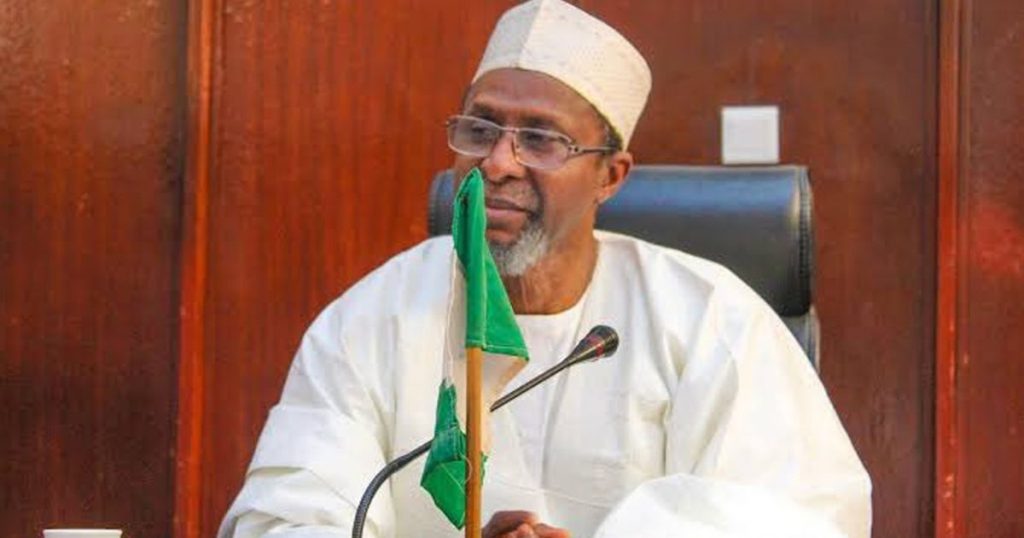The Imperative of Environmental Sustainability in Industrial Operations: A Focus on Decommissioning and Remediation
The Nigerian Federal Government has underscored the critical need for environmentally sustainable practices across various industrial sectors, particularly in oil and gas, mining, quarrying, and petrochemicals. This emphasis arises from the recognition that industrial activities, while essential for economic growth, can pose significant risks to the environment and human health. To address these risks, the government has mandated stakeholders to prioritize the decommissioning and remediation of industrial facilities and sites. This proactive approach aims to minimize environmental damage, protect public health, and ensure the sustainable use of natural resources for future generations. The government’s focus on these crucial processes signifies a commitment to responsible industrial development and long-term environmental stewardship.
Decommissioning, a crucial stage in the lifecycle of industrial facilities, involves the systematic removal of regulatory control from a site, allowing for its repurposing or reuse. This process necessitates meticulous planning and execution to mitigate potential environmental hazards and ensure the safe disposal of waste materials. Remediation, on the other hand, focuses on the cleanup of contaminated sites to minimize or prevent harm to human health, the environment, and ecological systems. Both decommissioning and remediation require adherence to stringent environmental standards and guidelines to guarantee effective and sustainable outcomes. The Nigerian government’s emphasis on these processes reflects a growing awareness of the importance of mitigating the long-term impacts of industrial activities.
The Ministry of Environment has taken a proactive step in organizing a specialized training program for staff of the National Environmental Standards and Regulations Enforcement Agency (NESREA) and its accredited environmental consultants. This training focuses on decommissioning plans and environmental remediation strategies, equipping participants with the necessary knowledge and skills to effectively evaluate and oversee these crucial processes. The training underscores the government’s commitment to strengthening regulatory oversight and ensuring compliance with both national and international environmental standards. By investing in capacity building, the government aims to enhance the technical expertise of regulatory personnel and promote best practices within the industry.
The training program addresses critical aspects of decommissioning and remediation, including waste management, hazard containment, and compliance with regulatory standards. Participants are also introduced to relevant national regulations and international frameworks that guide decommissioning practices globally. This comprehensive approach ensures that NESREA staff are well-equipped to review, approve, and enforce decommissioning plans that meet legal requirements and reflect the agency’s dedication to environmental stewardship. By promoting knowledge sharing and collaboration among industry professionals, regulators, and other stakeholders, the training fosters a collective responsibility towards environmental sustainability.
The training program also emphasizes the importance of incorporating best practices and lessons learned from past experiences, particularly in addressing instances of poorly managed decommissioning and remediation efforts that have resulted in long-term environmental damage, public health crises, and substantial economic costs. By learning from past mistakes and adopting proactive measures, the government aims to prevent future environmental disasters and ensure that industrial development proceeds in a sustainable and responsible manner. This commitment to continuous improvement reflects a proactive approach to environmental management and a recognition of the interconnectedness between environmental health and economic prosperity.
The Nigerian government’s focus on decommissioning and remediation underscores a commitment to responsible industrial development and long-term environmental sustainability. By prioritizing these critical processes, the government aims to mitigate the potential environmental and social impacts of industrial activities while safeguarding public health, protecting biodiversity, and ensuring the sustainable use of natural resources. The training program for NESREA staff and environmental consultants further reinforces this commitment by equipping them with the necessary expertise to effectively oversee these processes and enforce compliance with environmental standards. This proactive approach to environmental management sets a positive example for other nations and demonstrates Nigeria’s dedication to a sustainable future.














